Global politics: online courses
This page provides an overview of massive open online courses (MOOCs) for all those interested in international relations, global politics and the activities of international organizations.
What is a massive open online course, you can read here.

This course deals with international relations, peace and security. The course will help students gain insight into conflict resolution and the role international and regional organizations play in a changing world.
Duration: 7 weeks, 4–7 hours/week.
Language: English; subtitles available in Russian.
Provider: Leiden University; Coursera.
Course syllabus:
1. Theories of international relations.
2. The changing world order: rising powers and international institutions.
3. Conflict, conflict resolution and security.
4. Regional organizations in global affairs.
5. NATO in a changing world.
6. Reforming the United Nations Security Council: strategies and proposals.
7. Handing in the UNSC reform groups proposals
Contemporary Issues in World Politics
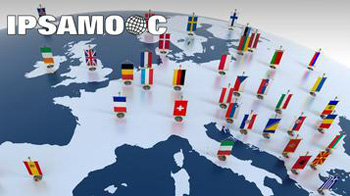
The course describes the post-World War II international order, its breakdown and resultant transformation.
Duration: 7 weeks, 4–6 hours/week.
Language: English.
Provider: University of Naples Federico II; edX.
Course syllabus:
1. The driving forces of international politics.
2. The world order after World War II.
3. Change in the post World War II order: the transformation of Central and Eastern Europe.
4. Change in the post World War II order: the dissolution of the Soviet Union.
5. Change in the post World War II order: disorder in the Balkans-dissolution of Yugoslavia.
6. The short lived American preponderance – the First Gulf War, the American occupation of Iraq.
7. Redressing the balance: the rise of Chinas and the return of Russia (Georgia, Ukraine, Syria).
8. The challenge of humanitarian disasters – western interventions (Bosnia, Kosovo).
9. The challenge of humanitarian disasters – western interventions (Rwanda, Somalia).
10. The challenge of terrorism and the war on terror.
11. Failed aspirations for political change – the Arab Spring and its aftermath.
12. Perennial problems and frozen conflicts.
EU Policy and Implementation: Making Europe Work!

In this course, the participants will learn how EU policy is made, and how it is implemented by the member states. They also will discuss the challenges of the European multi-level governance structure.
Duration: 5 weeks, 2–3 hours/week.
Language: English; subtitles available in Russian.
Provider: Leiden University; Coursera.
Course syllabus:
1. Understanding policy and the European policy process.
2. EU decision-making.
3. Transposition.
4. Implementation.
5. Redesigning EU policymaking.
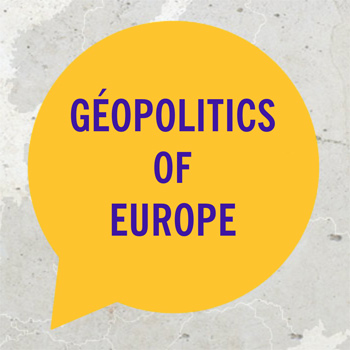
The course offers a dynamic program on both tensions and issues within the European Union, as well as its interactions with the rest of the world.
Duration: 7 weeks, 2–3 hours/week.
Language: English; subtitles available in Russian.
Provider: Paris Institute of Political Studies (Sciences Po); Coursera.
Course syllabus:
1. The variable-geometry maps of the European territory: who and what determines and set the EU boundaries?
2. The European integration, a pioneer political and territorial project.
3. The major outer challenges for Europeans by 2050: what is the impact of the world on the EU?
4. Europe in the world space: between power, influence and marginalization.
5. East – west VS north – south: the new dividing lines in Europe?
6. Europe in the eyes of the world: perceptions and expectations with regard to the European Union in large regions of the global space and to the emerging countries.
7. To go further: 2016: the European Union crisis is getting more acute.
Global Diplomacy: Diplomacy in the Modern World

The course promotes a better understanding of diplomacy, its practice, principles and past application.
Duration: 5 weeks, 1–2 hours/week.
Language: English; subtitles available in Russian.
Provider: University of London; Coursera.
Course syllabus:
1. What is diplomacy?
2. Success and failure in diplomacy.
3. The qualities of a “good” diplomat.
4. Diplomacy in action.
5. Reflections on diplomacy.
Global Diplomacy: the United Nations in the World

The course introduces the history of the establishment, structure and activities of the United Nations.
Duration: 7 weeks.
Language: English; subtitles available in Russian.
Provider: SOAS, University of London; Coursera.
Course syllabus:
1. Introduction.
2. The UN today: what is it?
3. Where did the United Nations come from, and why?
4. Power in international politics: how does the UN Security Council work?
5. What is the place of human rights in international politics?
6. Emergency help: how does the UN respond to crises?
7. Where next for the UN?
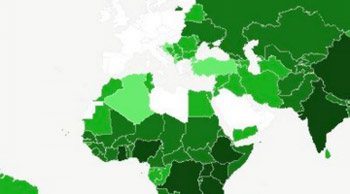
The course introduces the concept of global health diplomacy and examines the diplomatic, financial and geopolitical influences on global health decision making.
Duration: 7 weeks, 2–4 hours/week.
Language: English; subtitles available in Russian.
Provider: The State University of New York; Coursera.
Course syllabus:
1. Who are the players in global health diplomacy?
2. What are the drivers of policy for global health diplomacy?
3. How is global health financed?
4. Global health financing institutions.
5. What is global health governance and how does it work?
6. Global health security.
7. Final course assessment.

Course participants will consider the current global order and its future.
Duration: 6 weeks, 4–6 hours/week.
Language: English.
Provider: University of Naples Federico II; edX.
Course syllabus:
1. The globalization of knowledge.
2. Building a world order.
3. The current international order.
4. From the society of states to a society of peoples.
5. Order maintained: military hegemony.
6. Disorder emerges.
7. Global goods, global harms.
8. Adaptive organizations.
9. A brave new world.
10. Towards a world government?
Globalization: Past and Future

Course participants will consider whether globalization is a new phenomenon or a cyclical pattern throughout human history.
Duration: 4 weeks, 2–4 hours/week.
Language: English; subtitles available in Russian.
Provider: SDG Academy; edX.
Course syllabus:
1. Waves of globalization in history.
2. Ocean-based globalization: 1500–1800.
3. The Anglo-American world: 1800–2000.
4. The new globalization.

The purpose of the course is to familiarize students with what cyber threats and cyber conflicts are and why they occur. In addition, the course covers what the international community is doing to combat cyber threats and increase cyber security.
Duration: 5 weeks, 2 hours/week.
Language: English; subtitles available in Russian.
Provider: State University of New York; Coursera.
Course syllabus:
1. Introduction to cybercrime.
2. Internet governance.
3. Cyberwarfare and international conflicts.
4. Cyberwarfare and international law.
5. Interpersonal trust and trust among nations.
International Migrations: a Global Issue
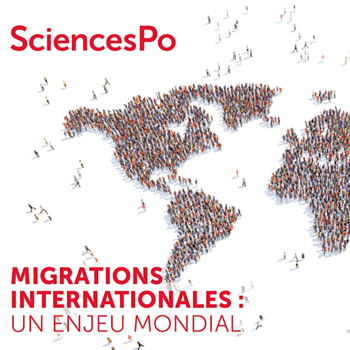
This course aims to improve knowledge of main challenges and current trends in international migration.
Duration: 9 weeks, 2 hours/week.
Language: English; subtitles available in Russian.
Provider: Sciences Po; Coursera.
Course syllabus:
1. Globalization of migration.
2. Refugees and environmentally displaced persons.
3. Europe.
4. France and international migration flows.
5. Citizenship and migration.
6. Borders.
7. Right to mobility and global governance.
8. Bibliography.
9. Maps.
International Organizations for Interpreters

The purpose of the course is to help a beginner interpreter or translator to gain basic knowledge about the history of creation, structure and functions of international organizations.
Duration: 6 weeks, 2–3 hours/week.
Languages: English, French.
Provider: University of Geneva; Coursera.
Course syllabus:
1. International Geneva.
2. History, evolution and trends.
3. The structure of international organizations.
4. The competencies and functioning of international organizations.
5. Multilingualism in international organizations.
6. Conclusion.
International Organizations Management
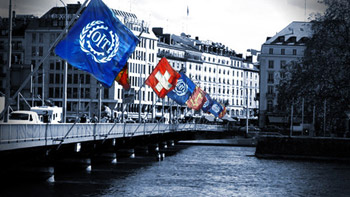
This course provides an overview of the management challenges international organizations are faced with. Participants will learn key theoretical frameworks and practical tools to excel in this environment.
Duration: 5 weeks, 2–3 hours/week.
Language: English; subtitles available in Russian.
Provider: University of Geneva; Coursera.
Course syllabus:
1. Introduction to international organizations.
2. The shifting context for international organizations.
3. Leadership in the UN system.
4. Public private partnerships.
5. Marketing and fundraising.
Politics and Economics of International Energy

The course discusses global trends in energy consumption and production, various scenarios for potential developments in the coming decades, the availability of oil reserves and the evolution of the oil industry. It then discusses natural gas and highlights the differences between oil and gas. It will also discuss renewable energy sources, nuclear energy and EU energy policy.
Duration: approximately 29 hours, flexible schedule.
Language: English; automatic translations available.
Provider: Sciences Po – Paris Institute of Political Studies; Coursera.
Course syllabus:
1. Introduction to global energy trends and scenarios.
2. Policies for decarbonisation.
3. Renewable energy sources.
4. Oil production, reserves and resources.
5. The economics and geopolitics of natural gas.
6. Nuclear energy.
7. Security of supply and demand.
8. Energy and development.
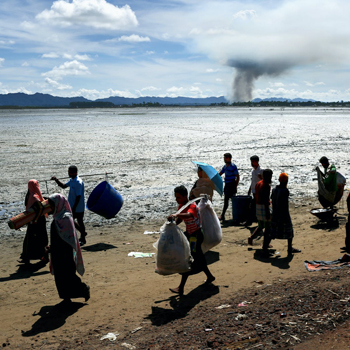
The course provides insight into the refugee phenomenon as one of the most complex, compelling and (arguably) misunderstood features of the 21st century.
Duration: 6 weeks, 4–6 hours/week.
Language: English; subtitles available in Russian.
Provider: The University of London; Coursera.
Course syllabus:
1. Course introduction and “A world of refugees” (understanding of the scale of the refugee phenomenon).
2. Who is a refugee?
3. The global “system” of refugee protection.
4. Solving the “refugee problem”.
5. Refugees as migrants.
6. Only the tip of the “forced migration” iceberg (comparison of the refugee phenomenon with that of “internally displaced persons”).
Security and Safety Challenges in a Globalized World

The course will introduce you to the broad theme of safety and security in an increasingly complex world.
Duration: 6 weeks, 3–5 hours/week.
Language: English; subtitles available in Russian.
Provider: Leiden University; Coursera.
Course syllabus:
1. Global challenges and wicked problems.
2. Safety and security.
3. Perspectives and levels.
4. Case studies.
5. Security and safety in practice.
6. Case study: explore, understand, do.
Sustainable Development in the 21st Century with Ban Ki-moon
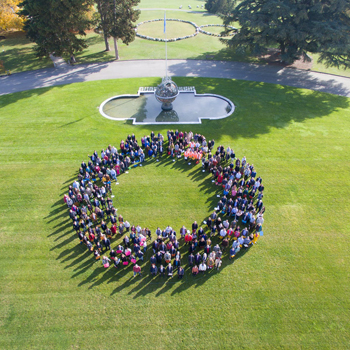
The course introduces the main components of the latest development agenda the international community agreed to achieve by 2030. The course is taught by the eighth Secretary-General of the United Nations, Ban Ki-moon.
Duration: 7 weeks, 2–4 hours/week.
Language: English; subtitles available in Russian.
Provider: Yonsei University; Coursera.
Course syllabus:
1. 2030 Agenda for Sustainable Development.
2. People.
3. Planet.
4. Prosperity.
5. Peace & partnership.
6. Youth & SDG implementation.
7. Final project.
Terrorism and Counterterrorism: Comparing Theory and Practice

This course gives an introduction into the field of terrorism and counterterrorism studies.
Duration: 6 weeks, 4–6 hours/week.
Language: English; subtitles available in Russian.
Provider: Leiden University; Coursera.
Course syllabus:
1. The essence of terrorism.
2. Researching terrorism and counterterrorism.
3. Five assumptions on terrorism.
4. Five assumptions on counterterrorism.
5. Dealing with terrorism and the future.
6. Making headlines today – foreign fighters.
Policy and management of water resources

The aim of the course is to provide an understanding of problems related to water resources management. First of all, the course defines the concept of resources and, in particular, water resources, water use, related activities, as well as possible conflicts. The topic of water resources management is considered in detail, the analysis of applicable types of law and norms is carried out, such as the development of a system of intersectoral regulation and management at the level of river basins.
Course syllabus:
1. From the definition of the concept of "resource" to the ideas of collective management
2. Regulation of resources and their use, implementation of norms in practice.
3. Integrated Water Resources Management (IWRM) and the Water-Energy-Food and Ecosystems system.
4. Integrated basin management. 5. Water as a factor of conflicts and the basis of cooperation.
Duration: near 15 hours.
Language: English; subtitles available in Russian.
Provider: Duke University, Emory University, The University of North Carolina at Chapel Hill; Coursera.
Understanding Europe: Why It Matters and What It Can Offer You
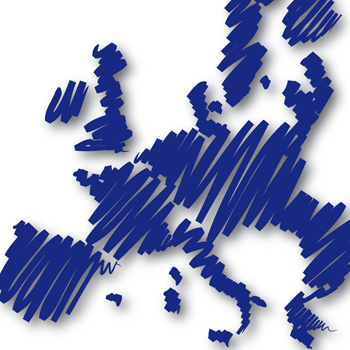
The course teaches how the European Union works and what opportunities the EU can offer.
Duration: 6 weeks, 2–4 hours/week.
Language: English; subtitles available in Russian.
Provider: HEC Paris; Coursera.
Course syllabus:
1. Why the European Union?
2. Who is the European Union?
3. What the EU can do?
4. How does the EU work?
5. What can the EU do for you?
6. What can you do for Europe?
Why Do People Migrate? Part 1: Facts
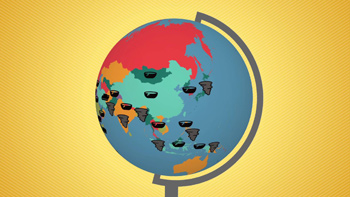
This course provides a general introduction to the conditions of refugees, asylum seekers and irregular migrants worldwide and an overview of the terminology used.
Duration: self-paced.
Language: English.
Provider: European University Institute (EUI); Iversity.
Course syllabus:
1. Introduction. Irregular migration and asylum.
2. Europe and the Middle East.
3. Americas.
4. Asia and Oceania.
Why Do People Migrate? Part 2: Theories
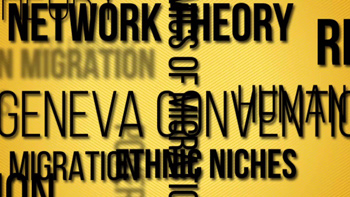
The course approaches migration as a constant phenomenon in human history and examines main theories which can explain migration.
Duration: self-paced.
Language: English.
Provider: European University Institute; Iversity.
Course syllabus:
1. Migration as a global phenomenon.
2. Why migration starts?
3. Why migration continues?
4. Examples.

